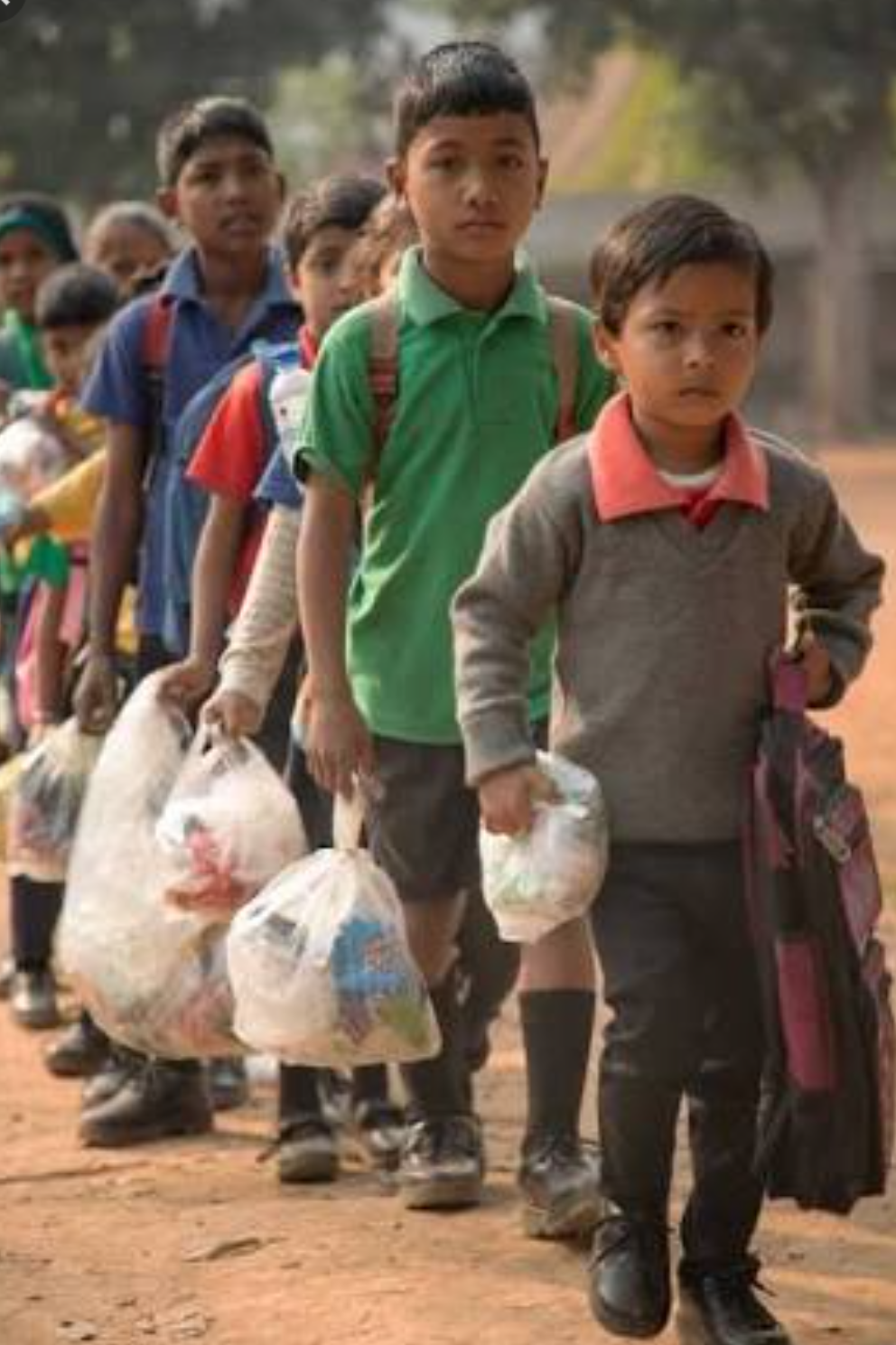
Over 1 billion children around the world head to class every day, but more than half drop out at the same day. The cause behind school dropout fluctuates. Some exit schools willfully while others are compelled to do as such under horrendous conditions. The major factors for school dropouts in India are affordability, accessibility and availability. A young couple in Assam has found a unique solution to this.

Akshar, concealed in the deep woods of Pamohi, Assam, is a school where students bring polythene bags brimming with plastic waste as the lone type of charge that the school acknowledges.
“We wanted to start a free school for all, but stumbled upon this idea after we realised a larger social and ecological problem brewing in this area. I still remember how our classrooms would be filled with toxic fumes every time someone in the nearby areas would burn plastics. Here it was a norm to burn waste plastic to keep warm. We wanted to change that and so started to encourage our students to bring their plastic waste as school fees,” said Parmita Sarma, who, along with Mazin Mukhtar, founded the school in June 2016.

When the gods granted one wish to King Midas, he wished that everything he touched would turn into gold. Midas was thrilled. But he soon discovered in horror that his food was also turning into gold. He realized his fallacy too late, when he embraced his daughter to soothe his pain. The wealthiest man in history was hungry, heartbroken and lonely. Humanity got a similar wish granted when we learned how to turn brown stinky goo into magic- plastic. Cheap, sterile and convenient it changed our lives forever. But this wonder of technology got a little out of hand. Plastic has saturated our environment. It has invaded the animals we eat and now it’s finding its way into our bodies. Who would have thought that we could again turn this waste into value and provide education in return?
Back in 2013, Mazin came to India on another school project from New York. His job led him to meet Parmita, a Tata Institute of Social Sciences (TISS) Masters Student in Social Work, who coincidentally decided to work in the education field as well. Parmita, originally from Assam, led Mazin through the region’s social setting, the obstacles, and paper and on-ground statistics, eventually leading to the notion of starting Akshar, a school that can blur the line between traditional academics and vocational training.
For an unusual fee structure, the Akshar School (meaning ‘letter’ in Assamese) has provided formal education to 110 children belonging to the economically backward group. Students bring plastic waste from their homes every day and are taught to recycle and reuse those products. The students with the help of teachers create eco-bricks which can be used to create various infrastructures on campus such as pathways, toilets etc. Another major issue that the school solved was of children dropping out. From an early age, children are pressured from their homes to work and find jobs. These students would be given Rs 150-200 per day at the stone quarries. We could never match that monetarily, so instead, we suggested a peer-to-peer learning model of mentorship, whereby older children can tutor the younger ones, and be paid in return in toy currency notes that can be used to purchase snacks, clothing, toys, shoes, etc., Parmita added.
Their aim was to create a curriculum, that was alternative yet relevant and would enable the children and their families create a better tomorrow. So, unlike conventional schools, Akshar has no age-specific norms or grades; instead, it is entirely focused on students’ level of intellect. Based on the students’ skills, checked at the time of entry, the levels are determined. To climb up the ranks, the student would then have to perform well. This is to guarantee that the standard of education is continuously improving. As a result, there are now a variety of vocational courses in the school curriculum, such as singing, dancing, solar paneling, embroidery, cosmetology, carpentry, gardening, organic farming, electronics, recycling, etc. Thus, the program is built according to the needs of the business and the expectations of students.
With their mantra, “Education, Environment, Employment”, Akshar is bringing a much needed wave of change. Marzin and Parmita’s goal is to take Akshar on a nation level and expand to 100 school in next 5 years.
For further queries mail us at [email protected]






